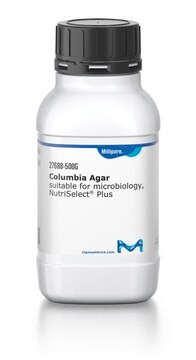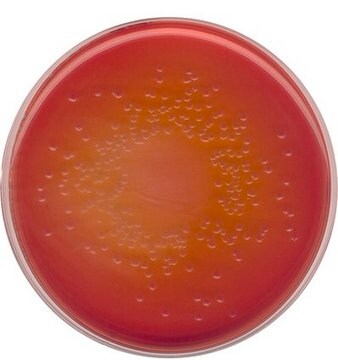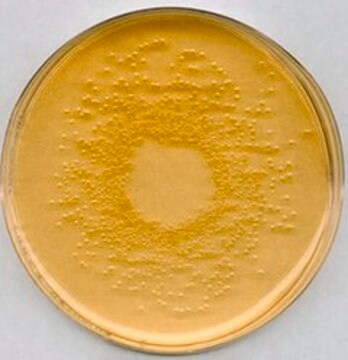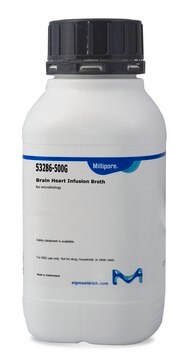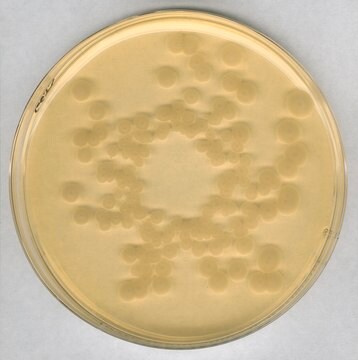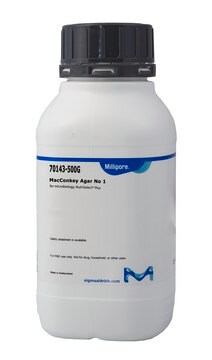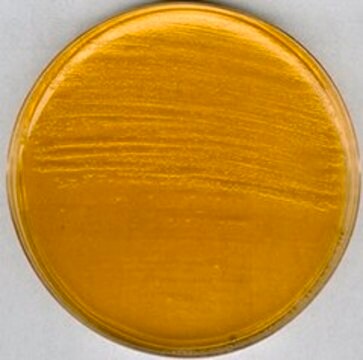B1676
Blood agar base no. 2
suitable for microbiology, NutriSelect® Plus
About This Item
Recommended Products
Agency
according to ISO 11290-1:2017
according to ISO 11290-2:2017
Quality Level
sterility
non-sterile
product line
BioChemika
form
powder
shelf life
limited shelf life, expiry date on the label
composition
Agar, 15.00 g/L
Liver extract, 2.50 g/L
Proteose peptone, 15.00 g/L
Sodium chloride, 5.00 g/L
Yeast extract, 5.00 g/L
manufacturer/tradename
NutriSelect® Plus
technique(s)
microbe id | specific enzyme detection: suitable
microbiological culture: suitable
pH
7.4±0.2 (25 °C)
application(s)
clinical testing
environmental
food and beverages
veterinary
microbiology
suitability
Enterococcus spp.
Haemophilus spp.
Pneumococcus spp.
nonselective and differential for Campylobacter spp.
nonselective and differential for Neisseria spp.
nonselective and differential for Staphylococcus spp.
nonselective and differential for Streptococcus spp.
nonselective and differential for bacteria (General Media)
nonselective and differential for molds (General Media)
nonselective and differential for yeasts (General Media)
Application
Preparation Note
Footnote
The designations basic, plus, or prime are added to indicate the quality control level, from basic quality control to standard QC plus to prime for full regulatory compliance.
Legal Information
related product
Storage Class Code
11 - Combustible Solids
WGK
WGK 3
Flash Point(F)
Not applicable
Flash Point(C)
Not applicable
Choose from one of the most recent versions:
Already Own This Product?
Find documentation for the products that you have recently purchased in the Document Library.
Customers Also Viewed
Articles
Chromogenic media enable the selective detection of S. aureus, which produce bluish-green colonies that are clearly differentiated from other species.
Campylobacter spp. are regarded as the leading cause of bacterial gastroenteritis in humans worldwide.
Streptococci- Overview of Detection, Identification, Differentiation and Cultivation Techniques
Protocols
In recent years it has been recognized that Listeria is an important public health problem. The disease affects primarily people of advanced age, pregnant women, newborns, and adults with weakened immune systems.
Our team of scientists has experience in all areas of research including Life Science, Material Science, Chemical Synthesis, Chromatography, Analytical and many others.
Contact Technical Service
